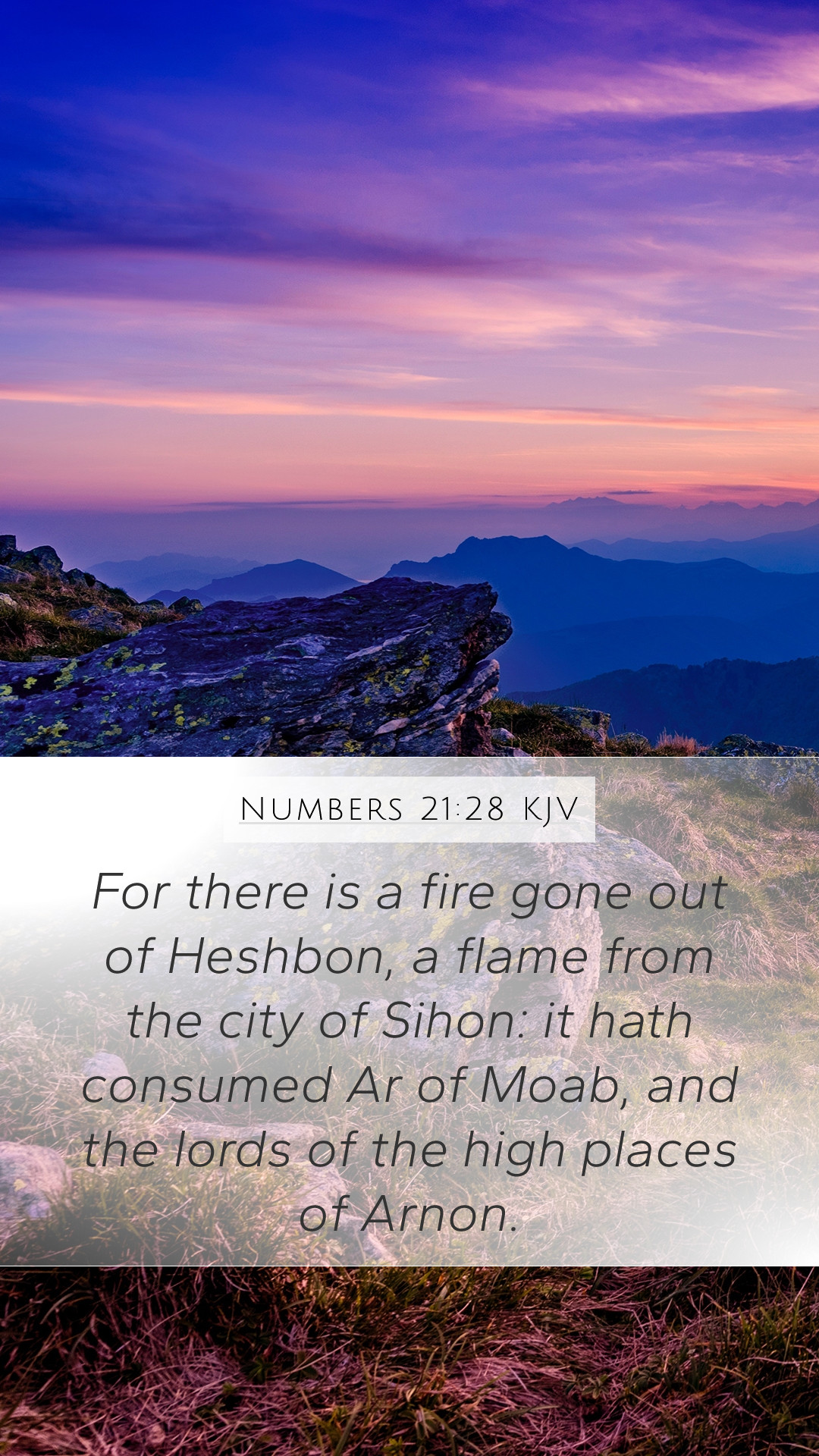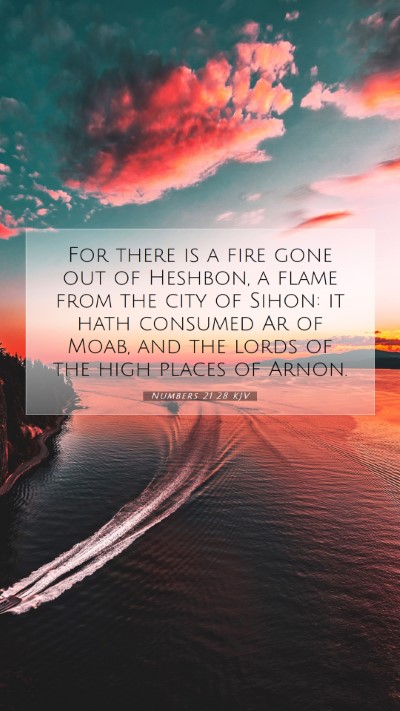Understanding Numbers 21:28
Verse: Numbers 21:28 - "For there came out a fire from Heshbon, a flame from the city of Sihon: it consumed Ar of Moab, and the lords of the high places of Arnon."
Bible Verse Commentary
This verse from the Book of Numbers presents a vivid image of divine judgment and highlights the power of God as an agent of destruction against those who oppose His will. Here, the fire symbolizes both God's wrath and the consequences of rebellion against Him.
Insights from Matthew Henry
- Divine Judgment: Henry emphasizes that the fire from Heshbon represents God's judgment over Sihon and the Moabites. It serves as a warning to nations that defy God's commandments.
- God's Sovereignty: This verse illustrates God's absolute control over nations and their fates, affirming that He intervenes in human affairs for His purposes.
- Historical Context: The context surrounding this verse illustrates Israel's journey and battles as they attempted to possess the land promised to them, showing the importance of relying on God in conquest.
Insights from Albert Barnes
- Symbolism of Fire: Barnes notes that fire often symbolizes purification as well as destruction, indicating how God cleanses the land of those who oppose Him.
- Emphasis on Geography: This geographical reference highlights the significance of Heshbon, linking it energetically to Israel's victories which were seen as a direct manifestation of divine assistance.
- Biblical Exegesis: The verse can be interpreted in the broader narrative of conflict between Israel and neighboring nations, where God’s might was displayed equally as judgment and vindication for His people.
Insights from Adam Clarke
- Historical Significance: Clarke points out that these historical accounts provide context for understanding the struggles of the Israelites during their wilderness journey and their ultimate goal of claiming the Promised Land.
- Application to Daily Life: The destruction of Ar by fire can also symbolize the destruction of sin in the life of believers, emphasizing God's power to cleanse and redeem.
- Analytical Perspective: Clarke promotes a view of the text that encourages deeper reflection on God's interactions with humanity, illustrating how He often acts decisively against injustice.
Meaning of the Verse
The verse encapsulates a moment of divine justice where nations hostile to Israel faced God's wrath. It serves as a reminder of the eternal principle that righteousness and obedience to God lead to protection and favor, while rebellion leads to destruction.
Related Bible Cross References
- Deuteronomy 2:24-25: Here, the Lord commands Israel to begin their conquest against Sihon.
- Jeremiah 48:45: This verse further emphasizes the destruction of Moab in prophetic contexts.
- Isaiah 15:1: Discusses the destruction of Moab in a similar thematic tone of divine judgment.
Conclusion
In summary, Numbers 21:28 offers profound insights into God's judgment, justice, and the implications of obedience. It encourages believers to reflect on the broader narrative where God actively participates in human history, guiding His chosen people towards fulfillment of His promises.
When studying this verse, one might consider its implications for modern life and the fundamental principles regarding justice and divine authority. Engaging with such passages calls for deep reflection, as understanding Scripture not only informs theology but also equips individuals in their moral and spiritual journeys.


